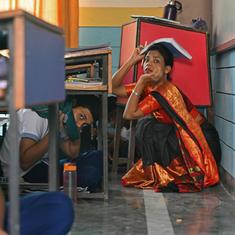Madhya Pradesh: After Indore, Bhopal bans begging in public places
Several beggars hailed from other cities and states ‘with some having criminal records’, the district administration claimed.

Begging in public places has been banned in Madhya Pradesh’s Bhopal, reported The Indian Express.
District Collector Kaushlendra Vikram Singh on Monday issued an order prohibiting the giving or accepting of alms, PTI reported.
“Individuals engaging in begging, either alone or with their families, not only violate government directives aimed at curbing the practice but also disrupt public movement and traffic,” The Indian Express quoted from the order.
The administration in Madhya Pradesh’s capital claimed an increased “risk of accidents” at traffic signals because of obstructions created by the beggars on roads. The authorities also claimed that many beggars hailed from other cities and states, “with some having criminal records”.
A “significant number of beggars are reportedly involved in substance abuse or other illicit activities, while organised begging networks often serve as fronts for criminal operations,” the order read.
Persons violating the directive could be imprisoned for up to one year or fined up to Rs 2,500, or both, under section 223 of Bharatiya Nyaya Sanhita.
The Bhopal administration said it had been informed “through newspapers and other media reports” that there had been an increase in the number of persons begging at traffic signals, places of worship and tourist sites.
The city of Indore, also in Madhya Pradesh, banned begging in public from January 1, claiming that the policy was aimed at rehabilitating beggars.
Several first information reports have been filed in Indore against persons violating the ban, according to The Indian Express.
Also read: Colonial roots, criminalising the vulnerable: Why India’s laws against begging need an urgent rehaul









